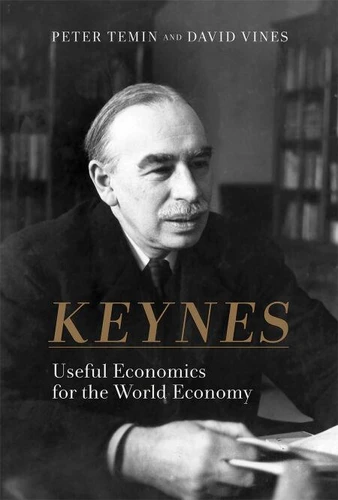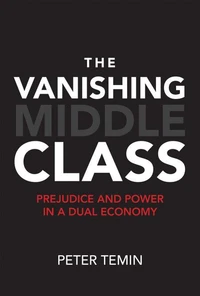Keynes. Useful Economics for the World Economy
Par : ,Formats :
Disponible dans votre compte client Decitre ou Furet du Nord dès validation de votre commande. Le format ePub protégé est :
- Compatible avec une lecture sur My Vivlio (smartphone, tablette, ordinateur)
- Compatible avec une lecture sur liseuses Vivlio
- Pour les liseuses autres que Vivlio, vous devez utiliser le logiciel Adobe Digital Edition. Non compatible avec la lecture sur les liseuses Kindle, Remarkable et Sony
- Non compatible avec un achat hors France métropolitaine
 , qui est-ce ?
, qui est-ce ?Notre partenaire de plateforme de lecture numérique où vous retrouverez l'ensemble de vos ebooks gratuitement
Pour en savoir plus sur nos ebooks, consultez notre aide en ligne ici
- Nombre de pages132
- FormatePub
- ISBN978-0-262-32195-2
- EAN9780262321952
- Date de parution19/09/2014
- Protection num.Adobe DRM
- Taille1 Mo
- Infos supplémentairesepub
- ÉditeurThe MIT Press
Résumé
Why Keynes is relevant to today's global economic crisis, and how Keynesian ideas can point the way to renewed economic growth. As the global economic crisis continues to cause damage, some policy makers have called for a more Keynesian approach to current economic problems. In this book, the economists Peter Temin and David Vines provide an accessible introduction to Keynesian ideas that connects Keynes's insights to today's global economy and offers readers a way to understand current policy debates.
They survey economic thinking before Keynes and explain how difficult it was for Keynes to escape from conventional wisdom. They also set out the Keynesian analysis of a closed economy and expand the analysis to the international economy, using a few simple graphs to present Keynes's formal analyses in an accessible way. Finally, they discuss problems of today's world economy, showcasing the usefulness of a simple Keynesian approach to current economic policy choices.
Keynesian ideas, they argue, can lay the basis for a return to economic growth.
They survey economic thinking before Keynes and explain how difficult it was for Keynes to escape from conventional wisdom. They also set out the Keynesian analysis of a closed economy and expand the analysis to the international economy, using a few simple graphs to present Keynes's formal analyses in an accessible way. Finally, they discuss problems of today's world economy, showcasing the usefulness of a simple Keynesian approach to current economic policy choices.
Keynesian ideas, they argue, can lay the basis for a return to economic growth.
Why Keynes is relevant to today's global economic crisis, and how Keynesian ideas can point the way to renewed economic growth. As the global economic crisis continues to cause damage, some policy makers have called for a more Keynesian approach to current economic problems. In this book, the economists Peter Temin and David Vines provide an accessible introduction to Keynesian ideas that connects Keynes's insights to today's global economy and offers readers a way to understand current policy debates.
They survey economic thinking before Keynes and explain how difficult it was for Keynes to escape from conventional wisdom. They also set out the Keynesian analysis of a closed economy and expand the analysis to the international economy, using a few simple graphs to present Keynes's formal analyses in an accessible way. Finally, they discuss problems of today's world economy, showcasing the usefulness of a simple Keynesian approach to current economic policy choices.
Keynesian ideas, they argue, can lay the basis for a return to economic growth.
They survey economic thinking before Keynes and explain how difficult it was for Keynes to escape from conventional wisdom. They also set out the Keynesian analysis of a closed economy and expand the analysis to the international economy, using a few simple graphs to present Keynes's formal analyses in an accessible way. Finally, they discuss problems of today's world economy, showcasing the usefulness of a simple Keynesian approach to current economic policy choices.
Keynesian ideas, they argue, can lay the basis for a return to economic growth.





